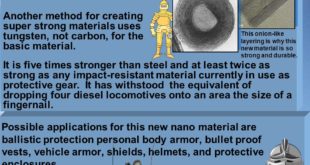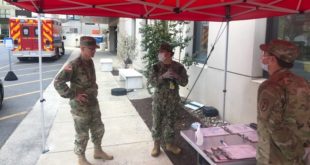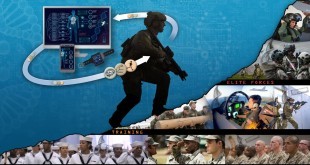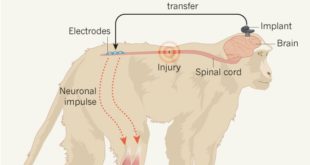Pilots rely more on vision than on any other sense to orient themselves in flight. The visual sense is especially important in collision avoidance and depth perception. A pilot’s vision sensors are the eyes generally are most accurate and reliable sense, even though they are not perfect in the way …
Read More »Global military textile demand , military requirements, technology trends, and large Market growth depending on testing as per Mil-specs
Operation of Armed Forces personnel in harsh military terrains for extended tenure period necessitates protection from elements and battle hazards. Harsh military terrains exert profound effects on the physical and physiological performance of the soldiers and can impart serious health hazards on inadequately protected soldiers resulting in mission failure and …
Read More »Nanotechnology based smart textiles protects against chem, bio agents and also initiate movement in response to a stimulus
Wearable electronic textiles (e-textiles) have become a focus of significant research interest due to their potential applications in sportswear, military uniforms, environmental monitoring and health care. Smart textiles are defined as textiles that can sense and react to environmental conditions or stimuli, from mechanical, thermal, magnetic, chemical, electrical, or other …
Read More »Nanotechnology for Bulletproof and Armor Materials
In order to defeat a threat, armor systems are designed to: deform/deflect the threat; dissipate energy; and prevent residual debris penetration. Most anti-ballistic materials used in bullet-proof jackets or explosion-proof blankets are made of Kevlar, Twaron or Dyneema fibers, which stop bullets from penetrating the surface by spreading and absorbing …
Read More »Threat of Battlefield air pollution affects soldiers and long term environment effects
Atmospheric pollution is a growing problem, particularly in urban areas and in less developed countries. With half the world has no access to clean fuels or technologies (e.g. stoves, lamps), the very air we breathe is growing dangerously polluted. More than 8 million people around the world die each year …
Read More »DARPA developing anti-laser defences for US aircraft pilots and Wearable Laser Detection and Alert System
In recent years, high power fiber and semiconductor laser technology has improved rapidly, with power density increasing by an order of magnitude or more. Much of this increase has been driven by demand for industrial cutting machines and high-bandwidth, long-range telecommunications. These same laser materials and devices can also be …
Read More »Biomarkers playing vital role from gauging Warfighter Readiness to predicting infection
The term “biomarker”, a portmanteau of “biological marker”, refers to a broad subcategory of medical signs – that is, objective indications of medical state observed from outside the patient – which can be measured accurately and reproducibly. Medical signs stand in contrast to medical symptoms, which are limited to those …
Read More »DARPA MBA develops set of Biomarkers predicting Warfighter Readiness and performance in military missions
The Defense Advanced Research Projects Agency launched a program helping the Department of Defense sustain and reinforce U.S. military readiness through the study of warfighter biology. The Measuring Biological Aptitude program seeks to understand biological processes and factors that could affect the performance of specialized military roles, according to DARPA. Service …
Read More »DARPA’s BG+ is mitigating spinal cord injury of wounded warfighter, promoting healing in the battlefield
In November of 2016 Nature reported that the results of experiments in Beijing, in which a wireless brain implant — that stimulates electrodes in the leg by recreating signals recorded from the brain — has enabled monkeys with spinal-cord injuries to walk. “They have demonstrated that the animals can regain …
Read More »DARPA’s INI developing AI algorithms of BCIs that allow troops to control unmanned systems using their brains.
Recent progress in central and peripheral neural interface technology has resulted in impressive capability demonstrations. These include the use of neural signals to control the reanimation of paralyzed muscles or to control high-dimensional prosthetic limbs, external robots, and even flight simulators. In many of these examples, sensory feedback from the …
Read More » International Defense Security & Technology Your trusted Source for News, Research and Analysis
International Defense Security & Technology Your trusted Source for News, Research and Analysis









